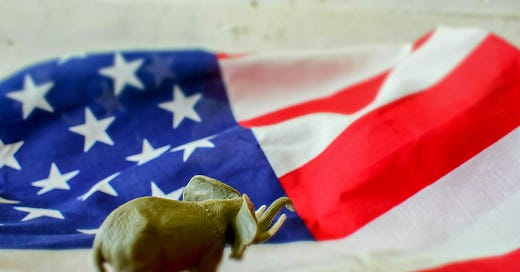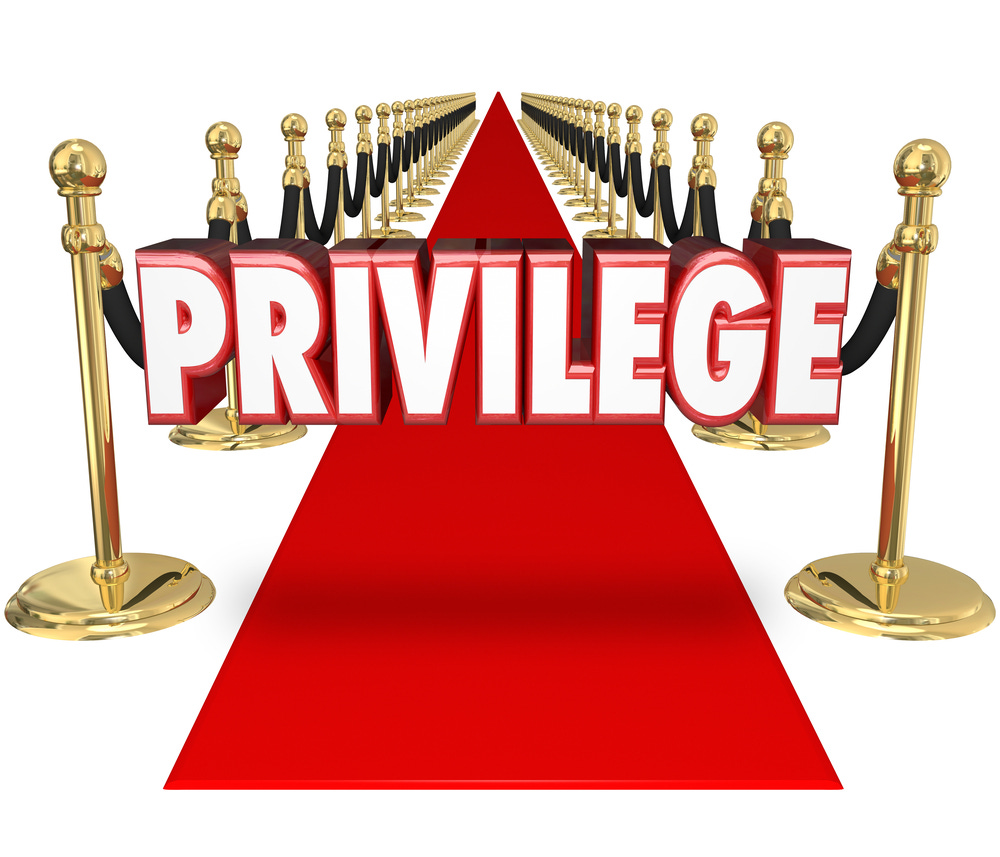E-Pluribus | September 12, 2023
DEI needs to check its privilege; sometimes you *can* fight city hall - and even the federal government; and the Democrat and Republican First Amendment gap.
A round-up of the latest and best writing and musings on the rise of illiberalism in the public discourse:
Eboo Patel: Today’s DEI Is Obsessed With Power and Privilege
The Diversity, Equity, and Inclusion (DEI) movement presents itself as a means of combating systemic and entrenched privilege and power. However, Eboo Patel argues that the DEI industry's myopic approach to problem-solving may be causing people to lose interest. “It’s time to overturn the Robin DiAngelo and Ibram X. Kendi model,” Patel boldly proclaims in the Chronicle of Higher Education.
Like so many other topics in American life (immigration, Trump), DEI has become embroiled in a fight, and many people do not have the energy for it.
The dynamic is demonstrated in a report put together by the research group More in Common, which found that public discourse is dominated by the 8 percent of the country who are progressive activists and the 25 percent who are conservative advocates. They relish presenting their arguments in stark binaries (Let every migrant in! Build a wall!) and punishing people who do not fully embrace their view. When it comes to DEI, it’s Ron DeSantis or Robin DiAngelo, whitewashing or wokeness, and nothing in between.
The report identifies the 67 percent of the population who are turned off by the culture wars as “the exhausted majority.” Too often, they do what people at my friend’s university are doing: walk away from the issue, leaving it to those who relish the fight.
[ . . . ]
How did we get here? Over the past five years or so, the DEI movement — with its emphasis on power, privilege, and oppression — has presented itself as synonymous with diversity work in general. It doesn’t just want your support, it wants to convince you that its approach is the only game in town.
This assertive stance from the DEI movement is currently backfiring. The good news is that there are other paradigms for diversity work. In fact, they have been in front of our faces the whole time.
Read it all.
Jay Bhattacharya: The Government Censored Me and Other Scientists. We Fought Back—and Won.
Last week a federal appeals court handed the Biden administration a loss on its actions to fight disinformation during the COVID pandemic. One of the primary targets of the administration’s efforts was Dr. Jay Bhattacharya, and Bhattacharya writes for The Free Press on what the decision means and what might come next.
[A]t the height of the pandemic, I found myself smeared for my supposed political views, and my views about Covid policy and epidemiology were removed from the public square on all manner of social networks. I could not believe this was happening in the country I so love.
In August 2022, my colleagues and I finally had a chance to fight back. The Missouri and Louisiana attorneys general asked me to join as a plaintiff in their case, represented by the New Civil Liberties Alliance, against the Biden administration. The aim of the suit was to end the government's role in this censorship—and restore the free speech rights of all Americans in the digital town square.
[ . . . ]
The case revealed that a dozen federal agencies—including the CDC, the Office of the Surgeon General, and the Biden White House—pressured social media companies like Google, Facebook, and Twitter to censor and suppress even true speech contradicting federal pandemic priorities. For instance, in 2021, the White House threatened social media companies with damaging regulatory action unless it censored scientists who shared the demonstrable fact that the Covid vaccines do not prevent people from getting Covid.
True or false, if speech interfered with the government’s priorities, it had to go.
On Independence Day this year, federal Judge Terry Doughty issued a preliminary injunction in the case, ordering the federal government to immediately stop coercing social media companies to censor protected free speech. In his decision, Justice Doughty compared the administration’s censorship infrastructure to an Orwellian Ministry of Truth. His ruling decried the vast federal censorship enterprise that dictated who and what social media companies could publish.
[ . . . ]
The decision isn’t perfect. Some entities at the heart of the government’s censorship enterprise can still organize to suppress speech. For instance, the Cybersecurity and Infrastructure Security Agency (CISA) within the Department of Homeland Security can still work with academics to develop a hit list for government censorship. And the National Institute of Allergy and Infectious Diseases (NIAID), Fauci’s old organization, can still coordinate devastating takedowns of outside scientists critical of government policy.
But the headline is a good one: the federal government can no longer threaten social media companies with destruction if they don’t censor on behalf of the government.
The Biden administration, which has proven itself to be an enemy of free speech, will surely appeal the decision to the Supreme Court. But I am hopeful that we will win there, just as we have at every venue in this litigation. I am grateful for the resilience of the U.S. Constitution, which has withstood this challenge.
Read it all here.
Thomas B. Edsall: Behold the Free Speech Chutzpah of the Republican Party
Republicans and Democrats can rarely find common ground anymore, but there’s one thing they agree on: that the other side routinely violates the First Amendment! Writing at the New York Times, and unlike Dr. Jay Bhattacharya in the preceding piece, Thomas Edsall comes down squarely on the Democrats’ side of the issue, citing as Exhibit One a congressional report released this summer.
[I]n an extraordinary display of chutzpah, Representative Jim Jordan, Republican of Ohio, and fellow Republicans on the House Judiciary Committee have accused Democrats of violating the First Amendment rights of election deniers.
In a June 26, 2023, interim staff report, Jordan and his colleagues charged that the Biden administration “colluded with big tech and ‘disinformation’ partners to censor” those who claimed that Trump won in 2020.
The report, “The Weaponization of CISA: How a ‘Cybersecurity’ Agency Colluded With Big Tech and ‘Disinformation’ Partners to Censor Americans,” makes the argument that “the First Amendment recognizes that no person or entity has a monopoly on the truth, and that the “truth” of today can quickly become the “misinformation” of tomorrow. Labeling speech “misinformation” or “disinformation” does not strip it of its First Amendment protection. As such, under the Constitution, the federal government is strictly prohibited from censoring Americans’ political speech.”
These civil libertarian claims of unconstitutional suppression of speech come from the same Republican Party that is leading the charge to censor the teaching of what it calls divisive concepts about race, the same party that expelled two Democratic members of the Tennessee state legislature who loudly called for more gun control after a school shooting, the same party that threatens to impeach a liberal judge in North Carolina for speaking out about racial bias, the same party that has aided and abetted book banning in red states across the country.
In other words, it is Republicans who have become the driving force in deploying censorship to silence the opposition, simultaneously claiming that their own First Amendment rights are threatened by Democrats.
Read the whole thing.
Around Twitter
Some excerpts from a long thread by Aaron Sibarium related to his new article at The Free Beacon on the “diversity” programs at America’s top law firms:
Here’s the Foundation for Individual Rights and Expression (FIRE) on a lawsuit in California over a law to compel social media companies to answer to the government for “hate speech” and “misinformation” policies:
And finally, Zaid Jilani has a way for parents to get around library “book bans” using this one weird trick: buy it!











